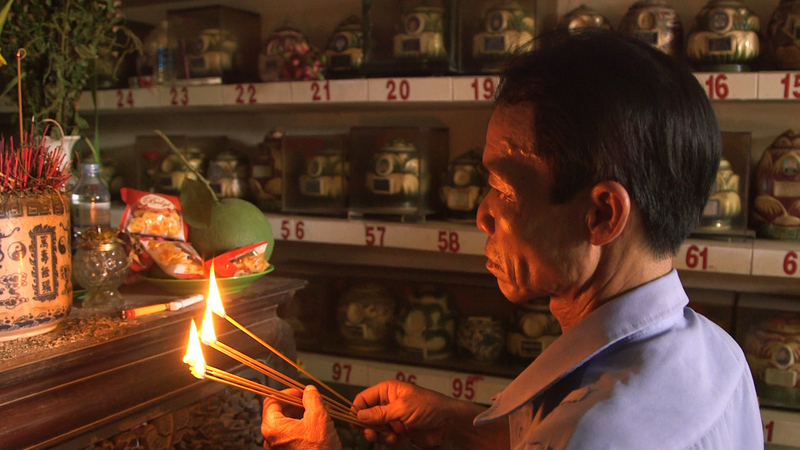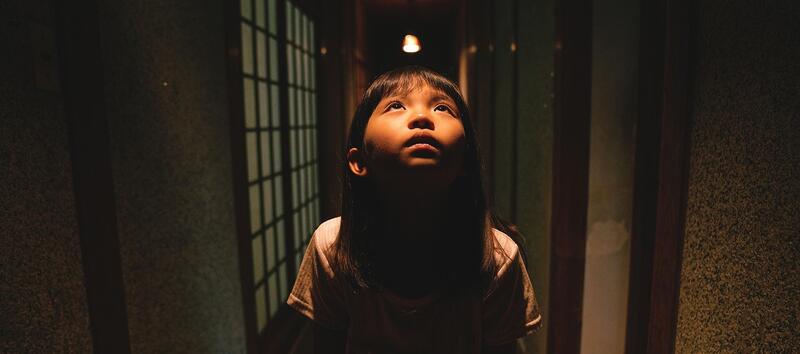
Piecing Together the Quiet Parts of Grief
MOVIE REVIEW
Jimmy in Saigon
–
Genre: Documentary
Year Released: 2022, 2025
Runtime: 1h 29m
Director(s): Peter McDowell
Where to Watch: in select theaters in Los Angeles, May 8, 2025, followed by VOD release on May 13. For more screenings, click here: linktr.ee/JimmyInSaigonDoc
RAVING REVIEW: When a story waits decades to be told, it rarely arrives in a straight line. That’s the terrain explored in JIMMY IN SAIGON, a documentary that avoids dramatics in favor of something more personal. The film quietly circles loss, identity, and the burden of unanswered questions passed down through silence. Rather than solving a mystery, it reflects on what it means to live in its shadow.
The documentary traces Peter McDowell’s journey to uncover the truth about his brother Jimmy, who died in Vietnam in 1972 under circumstances long left unexplored by his family. Rather than relying on reenactments or voice-of-God narration, the film takes its time, building a narrative from scraps—letters, archival photos, grainy home videos, and conversations with those who once knew Jimmy. The result feels more like a personal essay than a historical exposé, drawing power from what’s left unsaid as much as what’s revealed.
What makes this story unique isn’t the tragedy at its center, but how McDowell engages with it. Rather than defining Jimmy through his death, he tries to understand the decisions that led him back to Vietnam after his military service had ended. It’s not a move the average person would have made during wartime, and McDowell doesn’t offer a solid answer. Instead, the documentary explores the cultural and emotional disconnection Jimmy may have felt upon returning to the U.S.—a young man disillusioned by a society obsessed with conformity and consumerism, possibly chasing freedom in a place others were desperate to leave.
This is where the depth of the film starts to emerge. JIMMY IN SAIGON never attempts to frame Jimmy as a hero. It avoids categorizing him entirely. The film respects ambiguity as a tool rather than a hurdle. What if Jimmy didn’t fit the narrative his family needed him to? What if his return to Vietnam wasn’t about war or politics, but love, or simply the need to be seen on his terms?
A layer of identity exploration here quietly shapes the entire project. As Peter reflects on Jimmy’s life, he wonders about his brother’s sexuality—an aspect never openly discussed in their household. Peter’s own identity as a gay man subtly influences how he approaches these questions, but he never pushes Jimmy into a label. Instead, he opens space for speculation without demanding resolution. It’s an approach that feels both honest and respectful, acknowledging the historical context without trying to force a conclusion.
Friends, relatives, and acquaintances can share what they know without being considered definitive sources. Their stories are fragments, not answers—and the film understands that. There’s a generosity in giving people space to remember without needing them to be perfect historians.
The film's most successful choice is not to tie everything up. This isn’t a puzzle with a perfect solution. It’s an act of remembering, of reaching across time to understand a person who remains partly out of reach. That’s what gives JIMMY IN SAIGON its pull. By resisting the urge to resolve every question, the documentary lets the viewer live inside the uncertainty alongside Peter.
It doesn’t try to be a grand statement on grief or identity—it simply is what it is: a personal story made public, a private period shared just enough to feel relatable. It understands that most people have a version of Jimmy in their lives: someone lost too soon, someone they didn’t fully know, someone whose story feels incomplete. The film encourages audiences not to chase answers, but to make peace with the act of looking.
Some moments feel raw, others linger in quiet beauty, but what holds it all together is McDowell’s sincerity and restraint. His desire to understand is never self-serving; it’s grounded in compassion. He’s not trying to rewrite history—he’s trying to meet it where it stands. JIMMY IN SAIGON doesn’t push for catharsis, and it doesn’t hand you a perfectly formed narrative. It offers fragments, glimmers, and glimpses. Doing so reminds us that storytelling isn’t always about answers—it’s about presence. About showing up for the parts of history that have been left behind and letting them speak on their terms, however incomplete they may be.
You don’t walk away with a solved mystery when the film concludes. But you do leave with a deeper appreciation for the stories that often go unheard. And in that quiet act of listening, something healing begins.
Please visit https://linktr.ee/overlyhonestr for more reviews.
You can follow me on Letterboxd, Instagram, Twitter, and YouTube. My social media accounts can also be found on most platforms by searching for ' Overly Honest Reviews.
I’m always happy to hear from my readers; please don't hesitate to say hello or send me any questions about movies.
[photo courtesy of PETER MCDOWELL PRODUCTIONS, DARK STAR PICTURES]
DISCLAIMER:
At Overly Honest Movie Reviews, we value honesty and transparency. Occasionally, we receive complimentary items for review, including DVDs, Blu-rays, CDs, Vinyl Records, Books, and more. We assure you that these arrangements do not influence our reviews, as we are committed to providing unbiased and sincere evaluations. We aim to help you make informed entertainment choices regardless of our relationship with distributors or producers.
Amazon Affiliate Links:
Additionally, this site contains Amazon affiliate links. If you purchase through these links, we may receive a commission. This affiliate arrangement does not affect our commitment to honest reviews and helps support our site. We appreciate your trust and support in navigating these links.



Average Rating